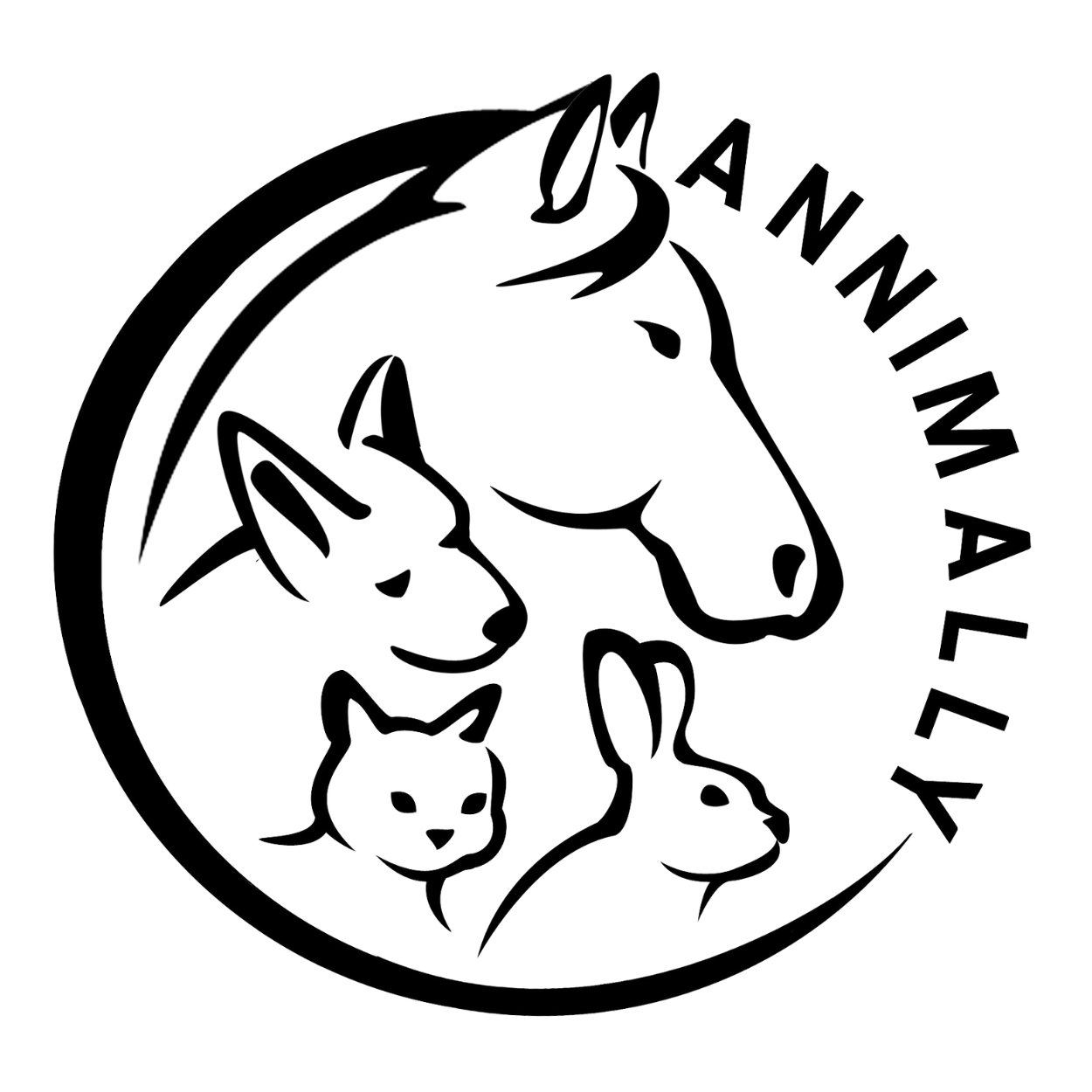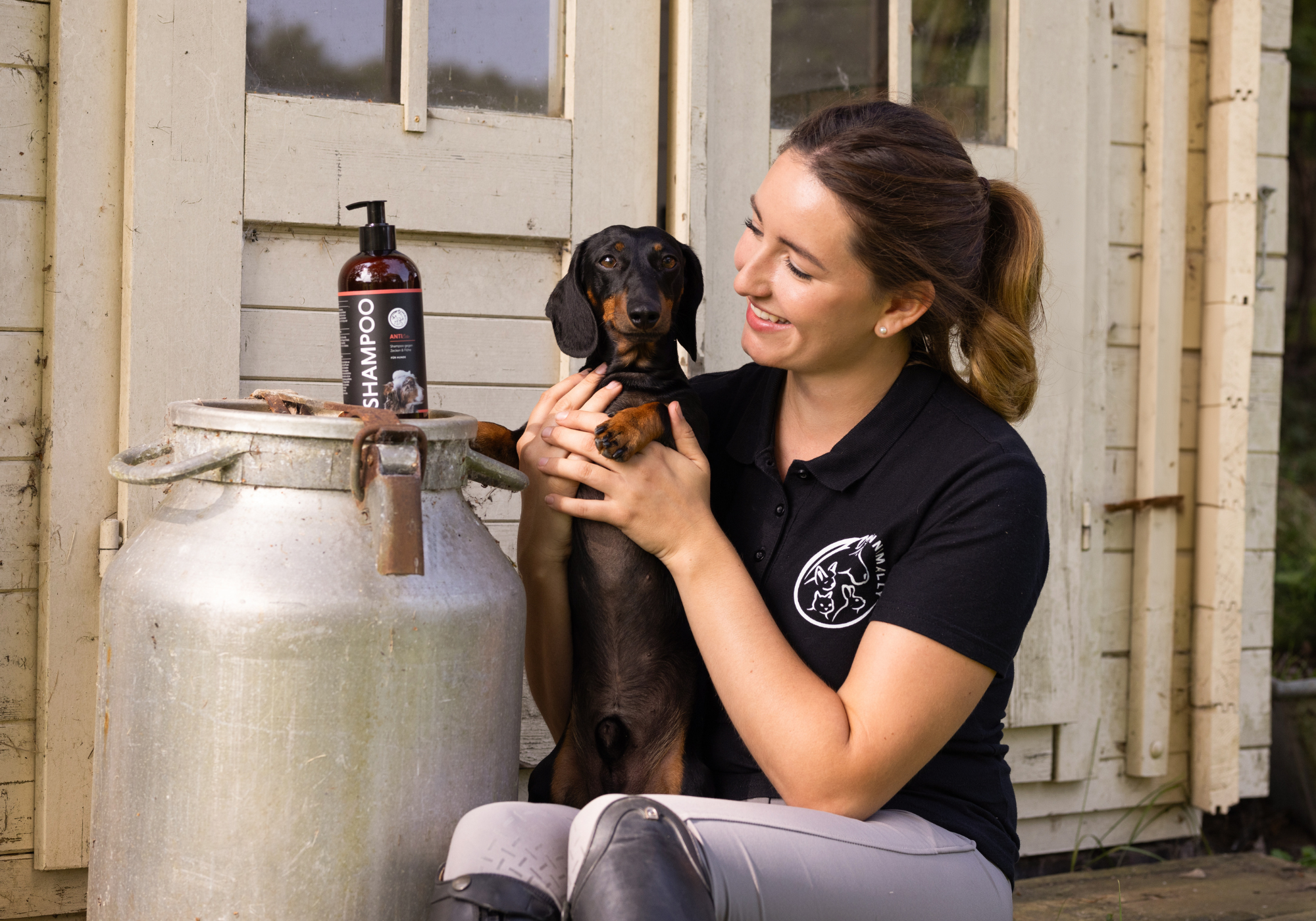Multi Vital
Important vitamins and minerals for your dog
For the majority of dog owners, feeding commercial dog food makes the most sense; not only is it convenient, but when you choose quality food made by companies with proven ingredient integrity, it provides your dogs with an overall healthy diet. However, when it comes to commercial pet food, there are many factors to consider and your dog may not be providing enough nutrients and minerals for a "complete and balanced" diet.
The Vitamins and minerals in many supplements will help your dog fight disease, increase energy, and generally maintain health. They're a great addition to your pet's diet - whether you're feeding them packaged dog food or homemade meals.
Which vitamin is found in which food?
- Vitamin A: carrots, spinach, liver, pumpkin, sweet potatoes, fish oil, eggs
- Vitamin D: Sea fish oil, oily fish, egg yolks, dairy products, liver, beef, cottage cheese
- Vitamin E: Vegetable oils, green leafy vegetables, seeds, wheat germ, bran, whole grains, liver
- Vitamin K: liver, green leafy vegetables, milk, cabbage, fish
- Vitamin C: fruits, vegetables, organ meats
- Vitamin B: Whole grains, nutritional or brewer's yeast, liver, beans, green vegetables, spirulina, nuts, dairy products
Which minerals, trace elements & minerals are in which food?
- Calcium: Milk, yogurt, tofu, bone-in sardines, raw bones, bok choy, green beans, broccoli, cauliflower
- Phosphorus: all animal tissues, eggs, fish, milk
- Magnesium: spinach, broccoli, green beans, tofu, tomato juice, beans, whole grains, seafood
- Potassium, Sodium and Chloride: Fruits, vegetables, milk, grains
- Zinc: spinach, broccoli, yogurt, beef, poultry, whole grains, vegetables
- Sulfur: All protein foods (meat, fish, poultry, eggs, legumes, and milk)
- Iron: Red meat, fish, poultry, shellfish, eggs, legumes
- Iodine: iodized salt, seafood, dairy products, seaweed
- Selenium: Seafood, meat, whole grains, brown rice, vegetables
- Copper: Seafood, Nuts, Whole Grains, Seeds, Legumes
- Manganese: nuts, whole grains, leafy greens
- Chromium: lean meat, vegetable oils, brewer's yeast
- Cobalt: Liver, Kidney, Fruits, Vegetables
- Fluorine: Available in water
- Molybdenum: legumes, cereals, organ meat
- Silicon: Grains, vegetables, beans and peas
7 vitamins your dog needs for a healthy life
Grocery stores, online, and pharmacies abound with products offering human vitamins. With so many choices for us, it's only natural that we wonder if dog vitamins are the right choice for our pets too.
But do dogs actually need these nutrients? Are there any risks? Which should you give your dog? Here are some answers.
What are vitamins?
Vitamins are organic compounds that are necessary for the maintenance of life. Most of these occur naturally in food. The bodies of all animals require vitamins for growth and maintenance. This is of course also the case for our favorite four-legged friends: dogs and cats.
You probably know most of the vitamins that the human and animal body need: A distinction is made between water-soluble vitamins and the fat-soluble ones.
- Vitamin A
- B vitamins (biotin, folate, niacin, pantothenic acid, riboflavin, thiamine, vitamin B6 and vitamin B12)
- Vitamin C
- Vitamin D
- Vitamin E
- Vitamin K
- Choline
Dogs also need these vitamins, although it is very important that we are aware that they may need them in different amounts than humans.
Vitamin A for dogs
Vitamin A, in case you've ever wondered, is the vitamin in carrots responsible for the good vision your parents promised you. This fat-soluble vitamin is also responsible for growth, fetal development, immune function, and cellular functions. There are eye care supplements for dogs that contain vitamin A.
B vitamins for dogs or also: vitamin B complex for dogs
The B vitamins are a group of important vitamins that play a role in the health of your dog. We want to go into more detail about these healthy little helpers.
VITAMINS fall into two families: fat-soluble, namely A, D, E, and K, and water-soluble, namely B and C.
In general, a balanced diet and additional synthesis by the intestinal bacteria ensure adequate intake, although this can become marginal in situations of severe water loss (diarrhea, etc.). This is due to the water soluble aspect of B complex vitamins and the fact that they cannot be stored.
Riboflavin (B2), niacin (B3), pantothenic acid (B5), pyridoxine (B6), biotin (B7) are all important for the quality of skin barrier function. Deficiency symptoms can lead to dry, scaly skin accompanied by weight loss and itching. For example, a lack of riboflavin can lead to hair loss on the head and neck, especially in cats.
Cats have high requirements for water-soluble B vitamins and they are unable to convert β-carotene into retinol (the active form of vitamin A). This shows us that in natural conditions these pets are adapted to a carnivorous diet, since these vitamins are present in large quantities in animal tissues.
The skin barrier cocktail - skin and coat in harmony
The Waltham Center for Animal Nutrition studied 27 substances thought to have a beneficial effect on skin function. The selection criteria were based on the limitation of water loss through the epidermis and the synthesis of skin lipids. From this, the center identified four B vitamins and one amino acid that work synergistically to improve the barrier function of the epidermis and reduce transepidermal water loss. They were:
- pantothenic acid, which is a co-enzyme involved in many metabolic pathways, including those of fatty acids;
- inositol and choline, which work together in the formation of cell membranes - together with phosphorus, choline forms phospholipids;
- Niacin, which is synthesized from tryptophan, is essential for cellular respiration and is also essential for good and supple skin;
- Histidine is essential for the growth and maturation of epidermal cells (keratinocytes).
Together, this "PINCH" cocktail works in synergy to promote the synthesis of ceramides (skin lipids necessary for the integrity of the outer layer of the epidermis). However, due to the time it takes for the epidermal cell differentiation process, these nutrients will only show a positive effect after about two months of administration.
The benefits of vitamin B12
In addition to those already mentioned, cobalamin is important for pets. It is a co-enzyme involved in many essential biochemical reactions and plays a primary role in protein synthesis and red blood cell formation.
It is mainly found in animal products (meat and offal) and is very stable when food is heat treated. It is the only vitamin that contains a mineral element, namely cobalt, in its chemical formula.
Cobalamin plays an essential role in the synthesis of nucleic acids (in synergy with folic acid). A deficiency disrupts protein synthesis, particularly in rapidly regenerating tissues such as hematopoietic tissue.
A decrease in the body's stores of cobalamin can be seen in cats and dogs that have problems with their pancreas or liver. The depletion of reserves can be explained by chronic dysorexia or intestinal malabsorption, which reduces the amount of cobalamin available to the animal.
Dogs, cats are not able to store large amounts of cobalamin in the body and they quickly become deaf when their homeostasis is disturbed. Therefore, vitamin B12 supplementation is essential for dietary control of cats and dogs with impaired pancreas or liver function.
The others from the B family
- Thiamine helps regulate energy and carbohydrate metabolism and activates ion channels in nerve tissue.
- Riboflavin, B12 and niacin support enzyme function.
- Vitamin B6 is particularly important. This vitamin is responsible for glucose formation, red blood cell and nervous system function, hormone regulation, immune response, niacin synthesis, and gene activation.
- Pantothenic acid helps in energy metabolism.
- Folic acid plays a role in amino acid and nucleotide metabolism and in mitochondrial protein synthesis.
Vitamin B-Complex
Vitamin B complex acts as a co-enzyme that promotes biochemical reactions to convert carbohydrates into glucose, which provides energy for the body. It is necessary in a dog's diet for the assimilation of protein and fat. Water-soluble, this set of vitamins flushes through the body in four to eight hours - oversupply is impossible: the body simply excretes too much with digestion.
Caution fragile! Sometimes more is more!
Commercial dog food is actually high in B vitamins, but these are delicate & fragile as they are destroyed by heat, light & air. Commercial dog food often reaches temperatures in excess of 50°C during processing, killing or altering many nutrients, minerals and amino acids.
The amount of complex actually available to the dog from commercial dog food is therefore minimal. Many of the B vitamins are destroyed when exposed to light and air. It is therefore of vital importance that a vitamin B complex is added to both commercial and home-cooked foods as a dietary supplement.
This complex is naturally present in liver, milk, eggs, brewer's yeast, wheat bran, wheat germ, kelp, molasses, kidney and heart, but even diets containing these are often insufficient to provide today's dog with enough B vitamins to counteract environmental pollution. Since it is a water-soluble vitamin, it should be fed twice a day.
Vegetarian diets for dogs are known to be low in B vitamins and it is vital that the complex is added to these diets.
Vitamin B deficiency symptoms in dogs
How to recognize a deficiency in a dog:
- Excessive scratching of the skin and coat
- flea allergies
- Has increased fleas and ticks
- Flies bother him in the summer
- Dirty and/or decayed teeth
- motion sickness/nausea
- weight gain and constipation
- hair loss
- premature greying
- Bad reaction to vaccines
- Anxious and stressed
- Elevated cholesterol levels
The components of the B complex work more efficiently when there is sufficient vitamin C in the diet, and both are critical for protein and fat absorption.
If your dog has chronic ear problems, kidney, liver, or metabolic disorders, skin allergies, pigment changes, epilepsy, or behavioral changes such as aggression, shyness, anxiety and fear, or an inability to think and act clearly, they may be deficient in vitamins des B complex.
Why B Complex instead of Vitamin B-12?
The B vitamins can be purchased as individual components. It is possible to buy B1, B6, vitamin B12, etc. Many people then use these without using the entire complex. None of these vitamins occur in nature. Foods that contain B vitamins contain several of them, and no food is known to have them isolated. So, for example, if you decide to feed extra B6, it should always go with the complex powder to be fed.
Is your dog taking antibiotics?
A good B complex should also be fed whenever antibiotics are used. Most antibiotics destroy the B vitamins in the digestive tract, which often leads to diarrhea.
Adequate intake of Vitamin B-Complex helps your dog stay healthy and young and allows them to cope with daily stresses and also helps them repel fleas and ticks.
Vitamin C for Dogs
Vitamin C is an important antioxidant. It scavenges potentially harmful free radicals in the body and may help reduce inflammation and cognitive aging. Dogs can actually synthesize vitamin C on their own in their liver, but in many cases supplementation can provide health benefits.
Vitamin D for dogs
Vitamin D, or the "sunshine vitamin," allows your dog's body to balance minerals like phosphorus and calcium for healthy bone growth. Without this vitamin, your dog would not be able to develop properly or maintain healthy muscles and bones.
Vitamin E for dogs
Vitamin E is one of your dog's defenses against oxidative damage. This fat-soluble vitamin is also essential for cell function and lipid metabolism. Deficiency can lead to eye and muscle degeneration and reproductive problems.
Vitamin K for dogs
Vitamin K is a fat-soluble vitamin that plays a crucial role in activating your dog's blood clotting ability. Ingestion of certain rat and mouse venoms inhibits dogs' ability to utilize vitamin K in their bodies, leading to bleeding and death if left untreated.
choline for dogs
Choline is a necessary component of the phospholipid cell membrane. It supports healthy brain and liver function and is occasionally used as part of a treatment plan for pets with epilepsy.
Do dogs need vitamin supplements from tablets & Co.?
Does your dog get its nutrients from dog food? Commercial dog food products labeled "complete and balanced" do not always contain all of the vitamins, minerals, and nutrients your dog needs.
Foods intended for different life stages, such as puppy food, adult dog food, and senior dog food, contain different amounts of certain nutrients based on the needs of that life stage. This is especially important for large breed puppy foods, as these breeds can develop conditions like hip dysplasia if their diet contains minerals like calcium that cause them to grow too quickly.
Even dogs that are fed a homemade diet may need supplements to ensure they are getting enough nutrients with their meals.
Are There Any Risks Associated With Dog Vitamins?
A balanced supply of vitamins is absolutely vital. It shouldn't surprise us that something so essential can also be potentially dangerous in large quantities.
You may already know that high levels of the mineral calcium can cause skeletal problems in large breed puppies.
Too much vitamin A can lead to dehydration, joint pain and even damage your dog's blood vessels.
You can avoid these risks by working out a diet plan with your veterinarian.
How to choose a dog vitamin?
The best way to decide on a dog vitamin is to talk to your veterinarian about which dog vitamin supplements are right for your dog.
There are exceptions to this rule. If your dog requires additional nutrients, either as a supplement to their homemade food or because of an illness or deficiency, then you should make sure your dog is getting the appropriate vitamin supplement.
If you are unsure, talk to your veterinarian about the appropriate vitamin dosage for your dog.
Products for humans often have different concentrations of vitamins than Products specially made for four-legged friends and may even contain additives that are harmful to dogs. That means: If necessary, get a powder or tablets that are ideal for dogs and ideally contain multi-vitamins and multi-minerals. With our multi-vital powder you also have the security of getting completely natural ingredients:
- brewer's yeast
- Gerstengras
- Burma Spirulina Algae
- Salmon
- açai fruit and
- Acerola
The ideally combined and also tasty powder not only offers a wide range of vitamins for dogs (including vitamin B complex) but also other important high-quality minerals, trace elements and omega 3 fatty acids for a healthy supply when needed: all this for e.g. skin and coat, gastrointestinal, digestion etc.
Simply dosed and, in contrast to tablets, also easy for your four-legged friend to absorb. So that you are absolutely sure which quantities of which substance are contained, we have had the powder examined by an independent laboratory and are providing you with the exact analyzes on our product page available for download.
Vitamins are some of the building blocks of your dog's health. Feeding a quality supplement is the best way to ensure your dog is getting all the nutrients they need.



